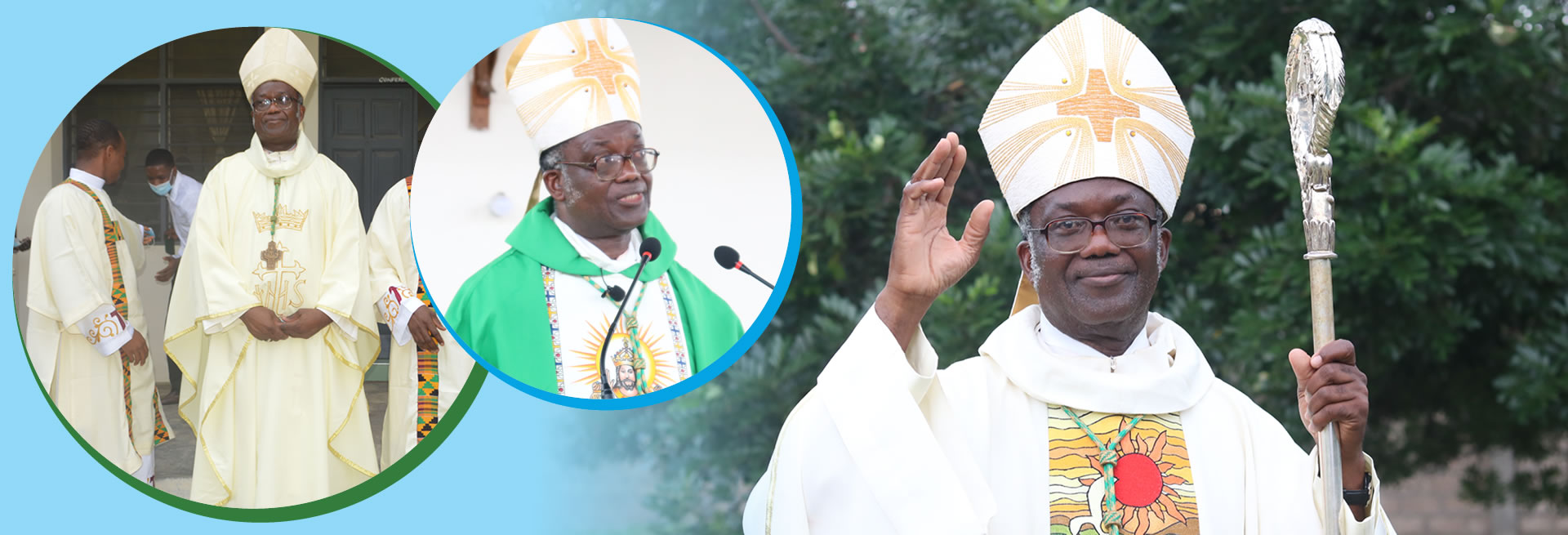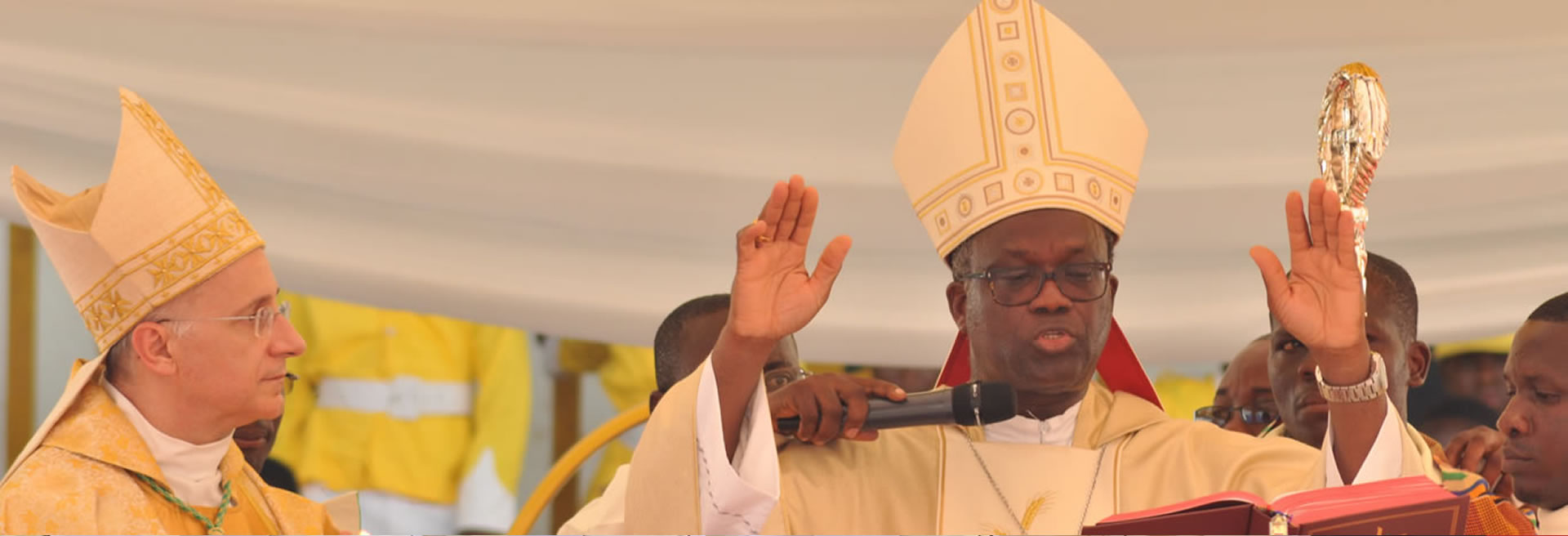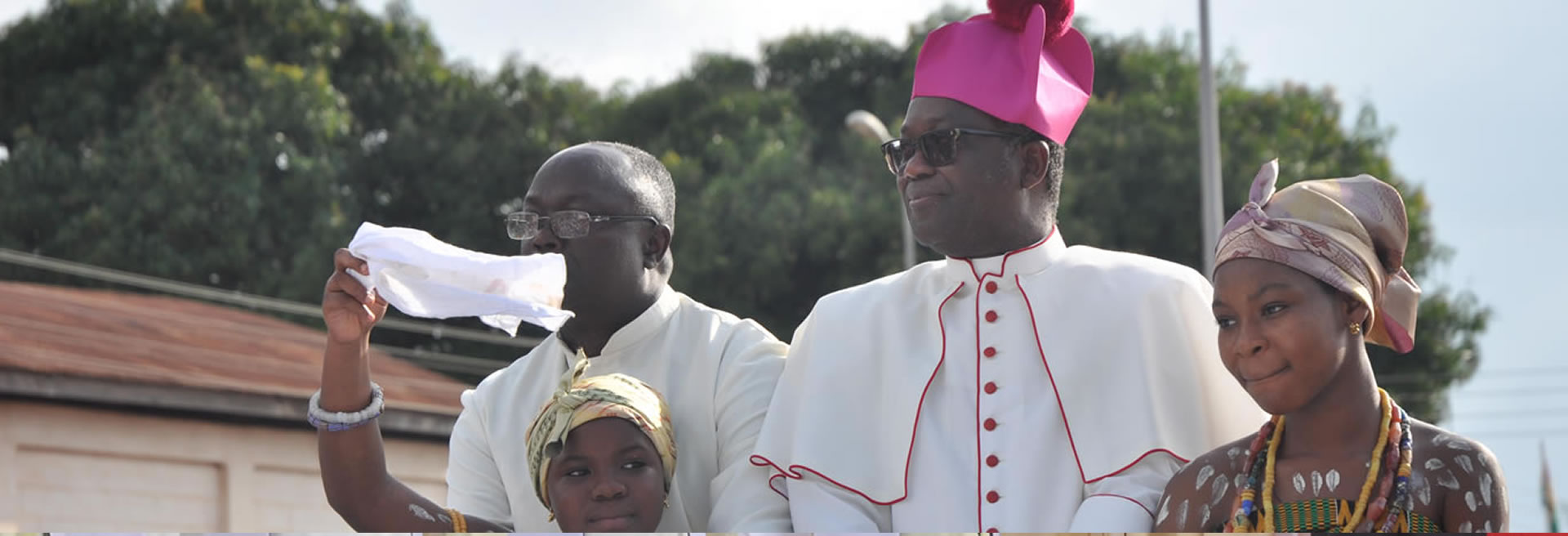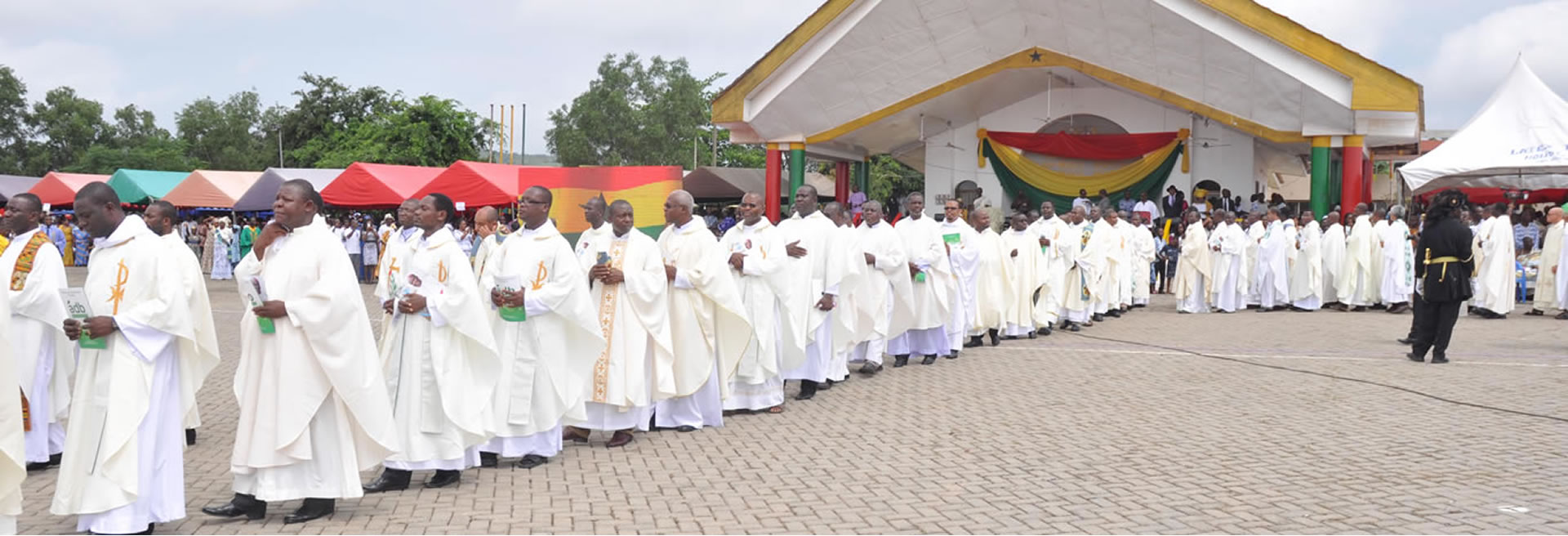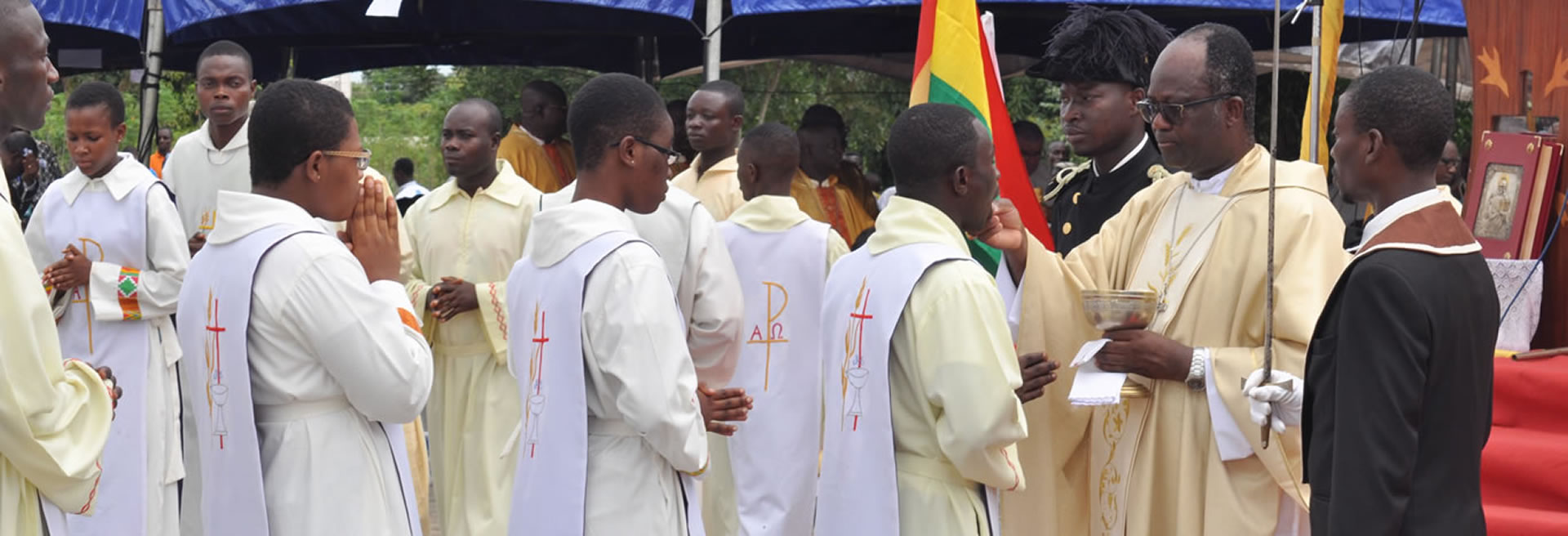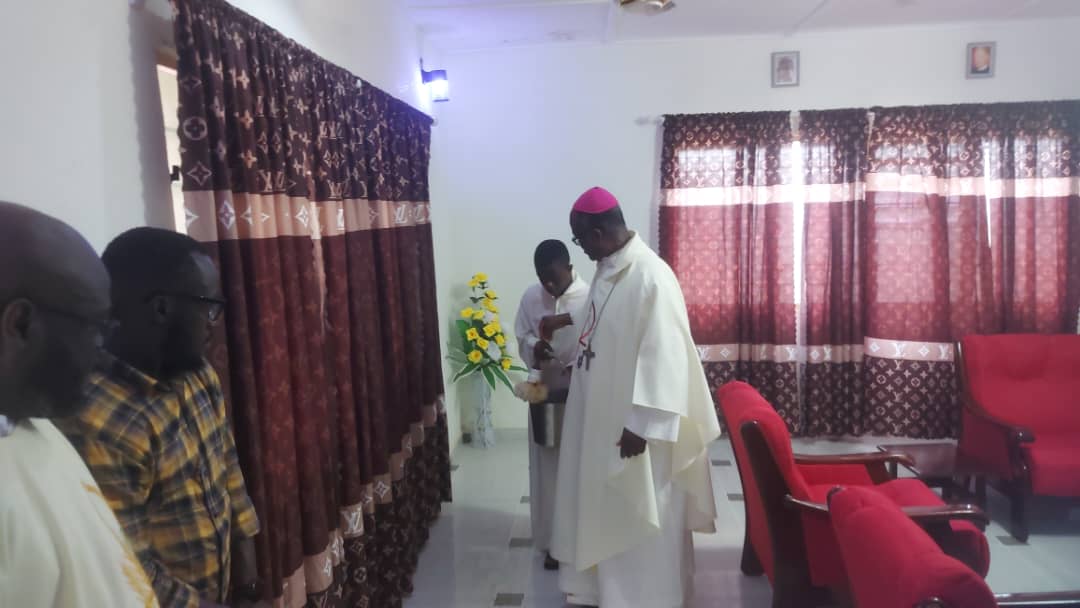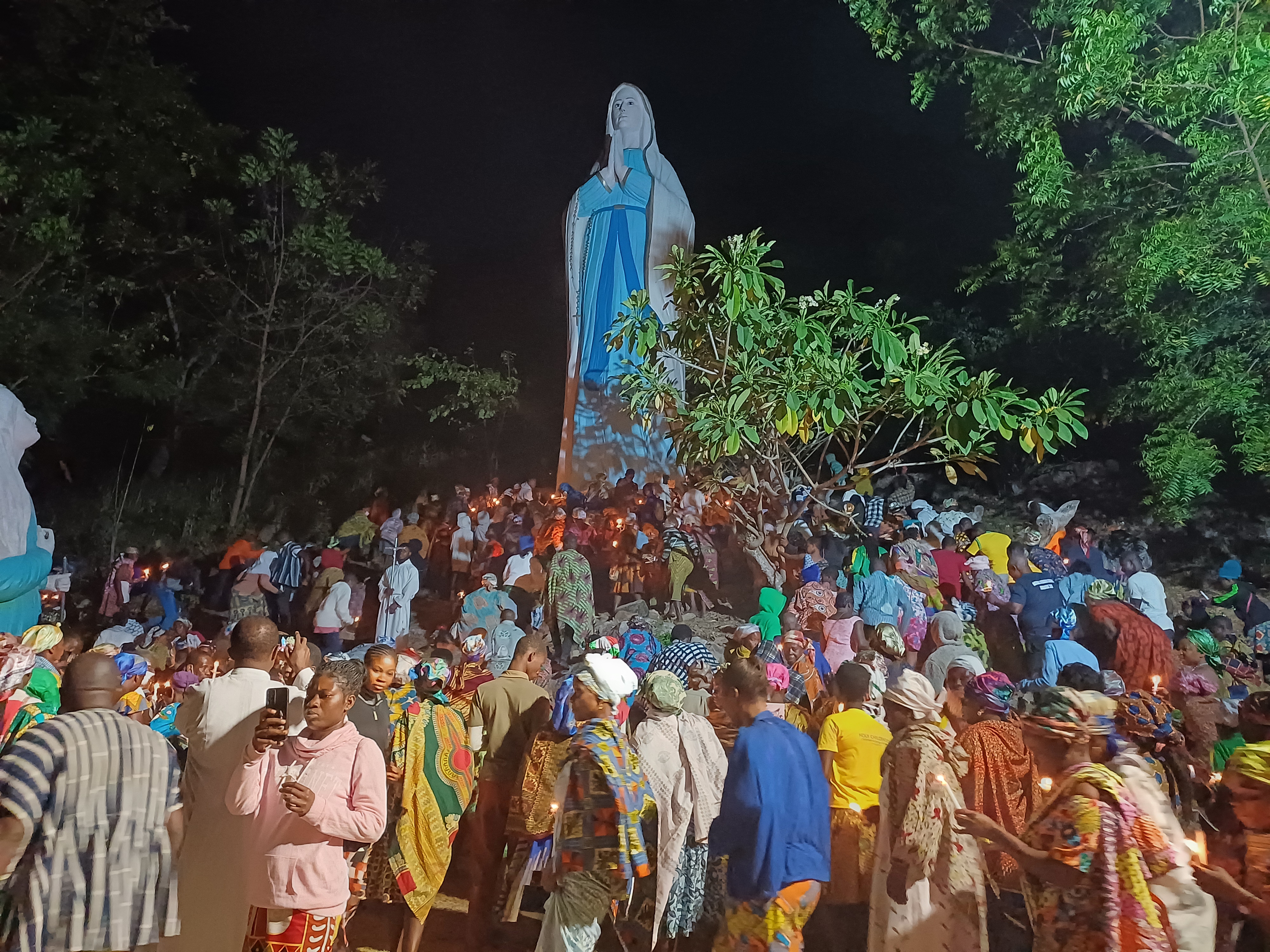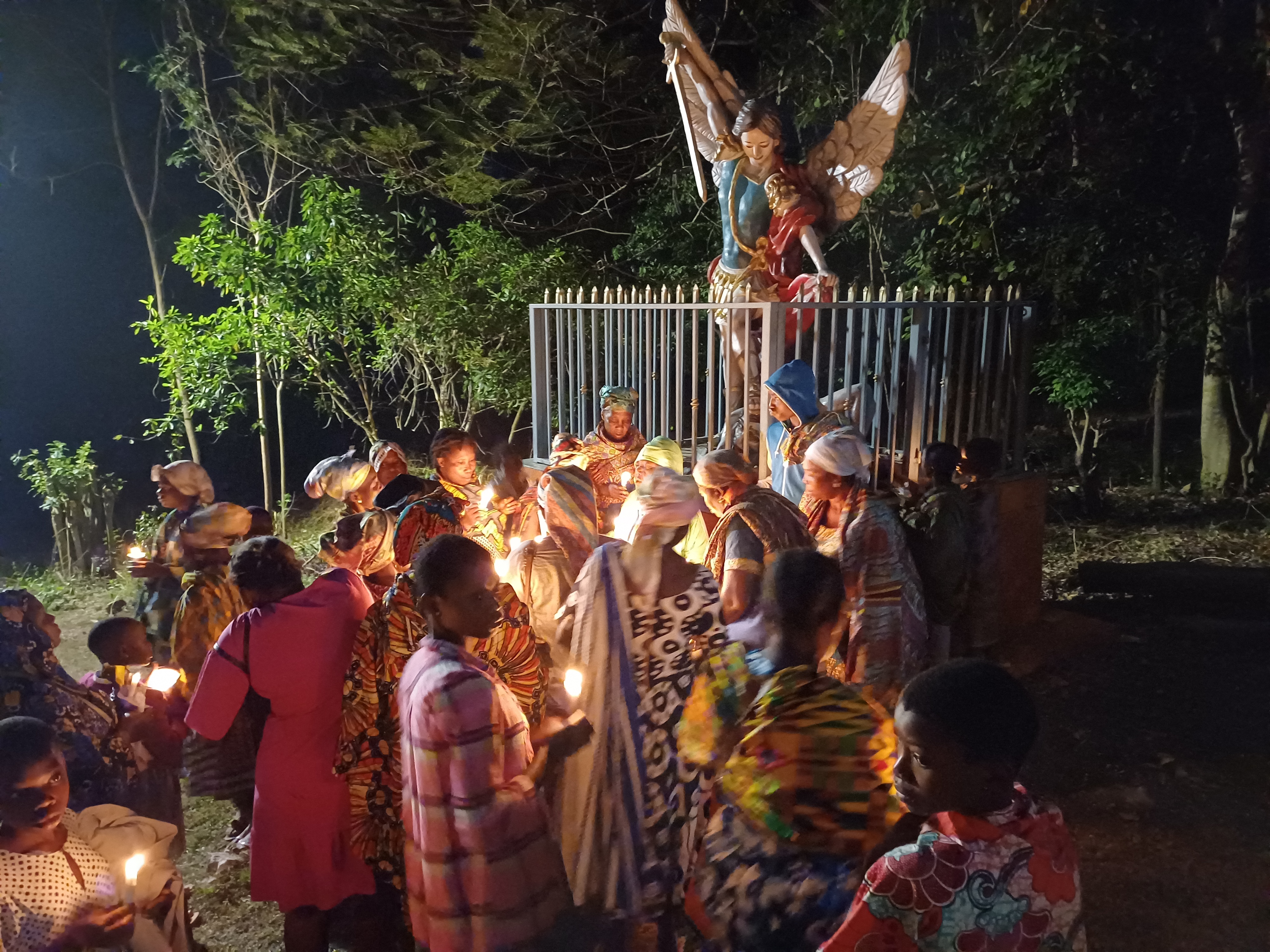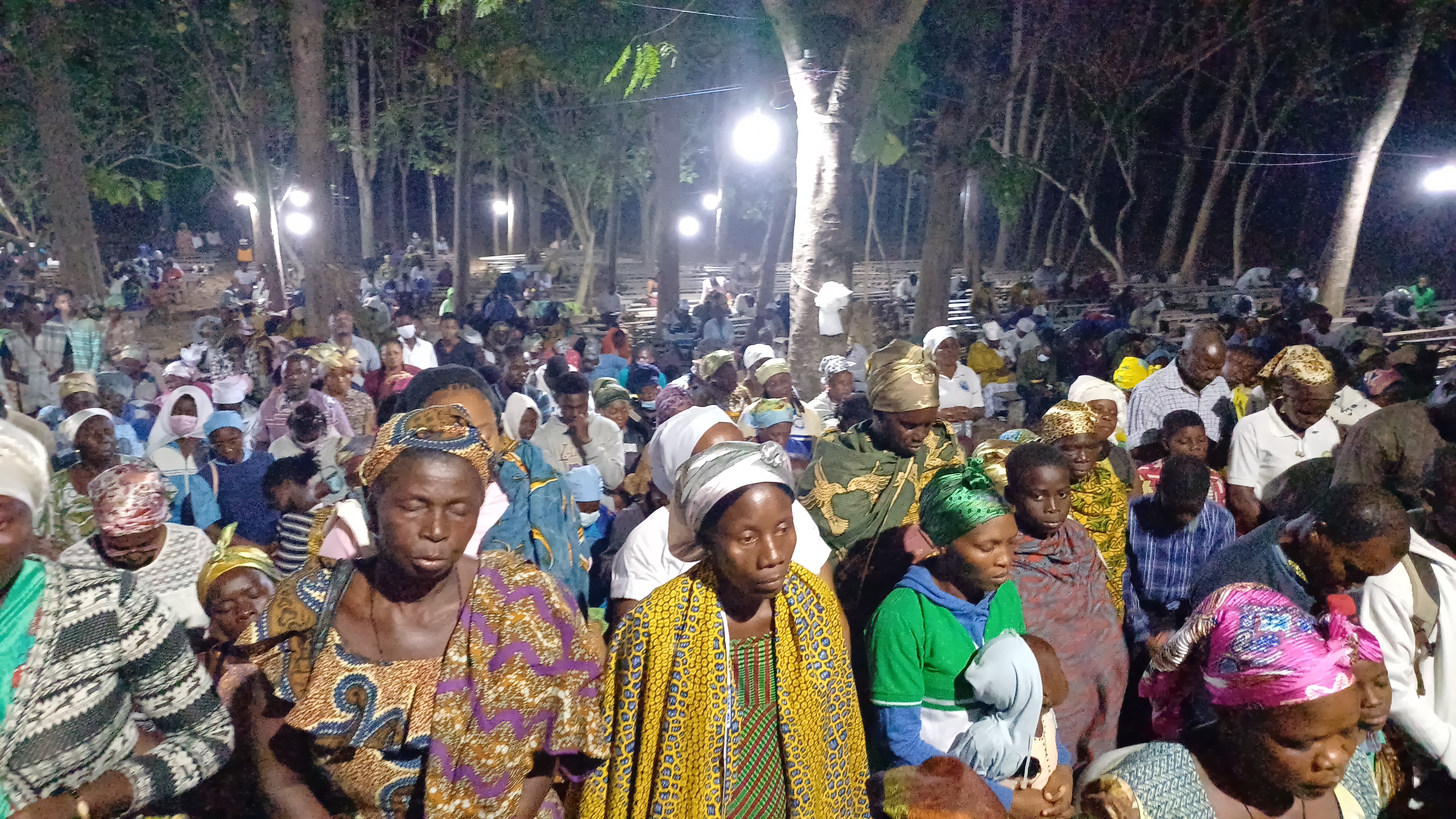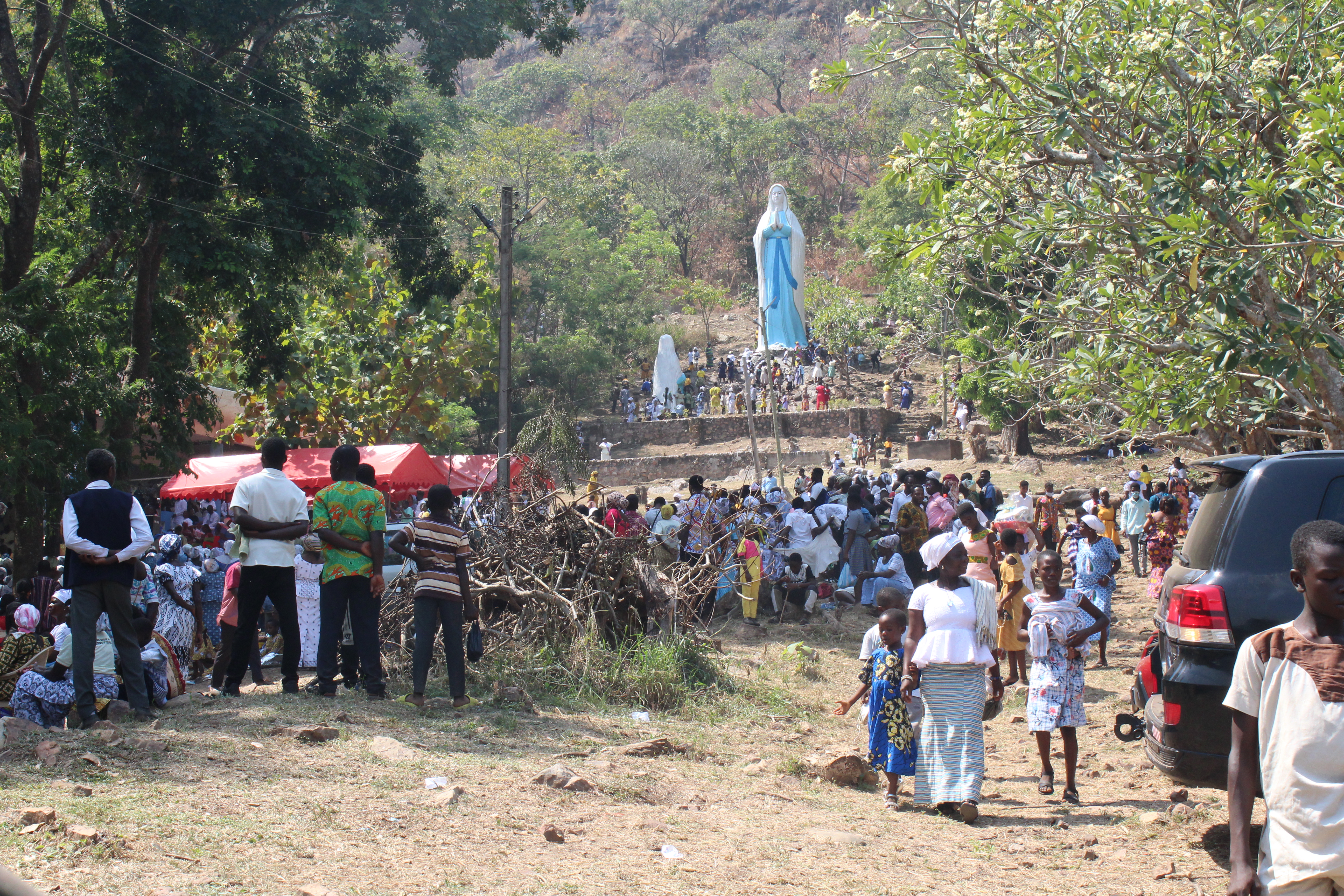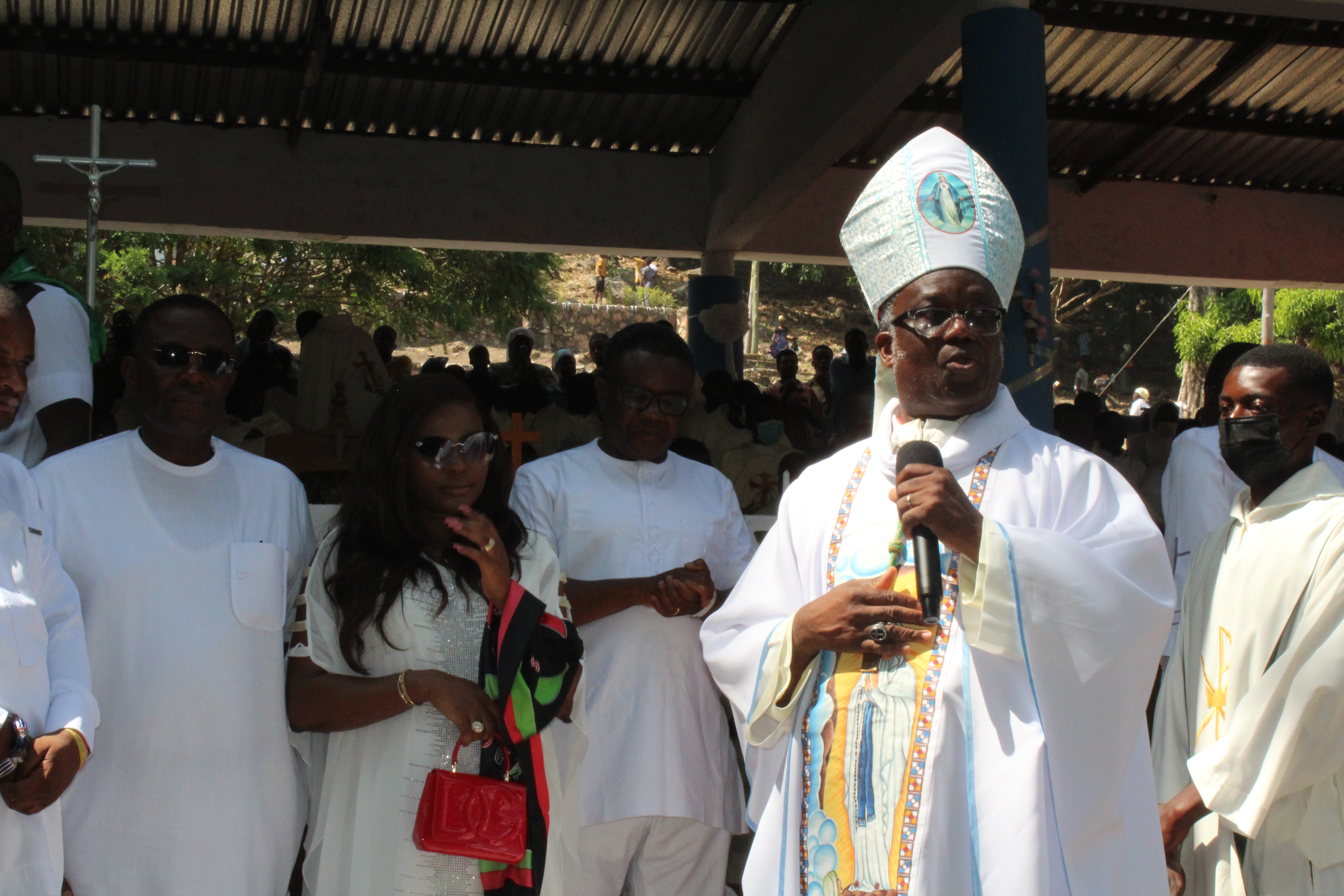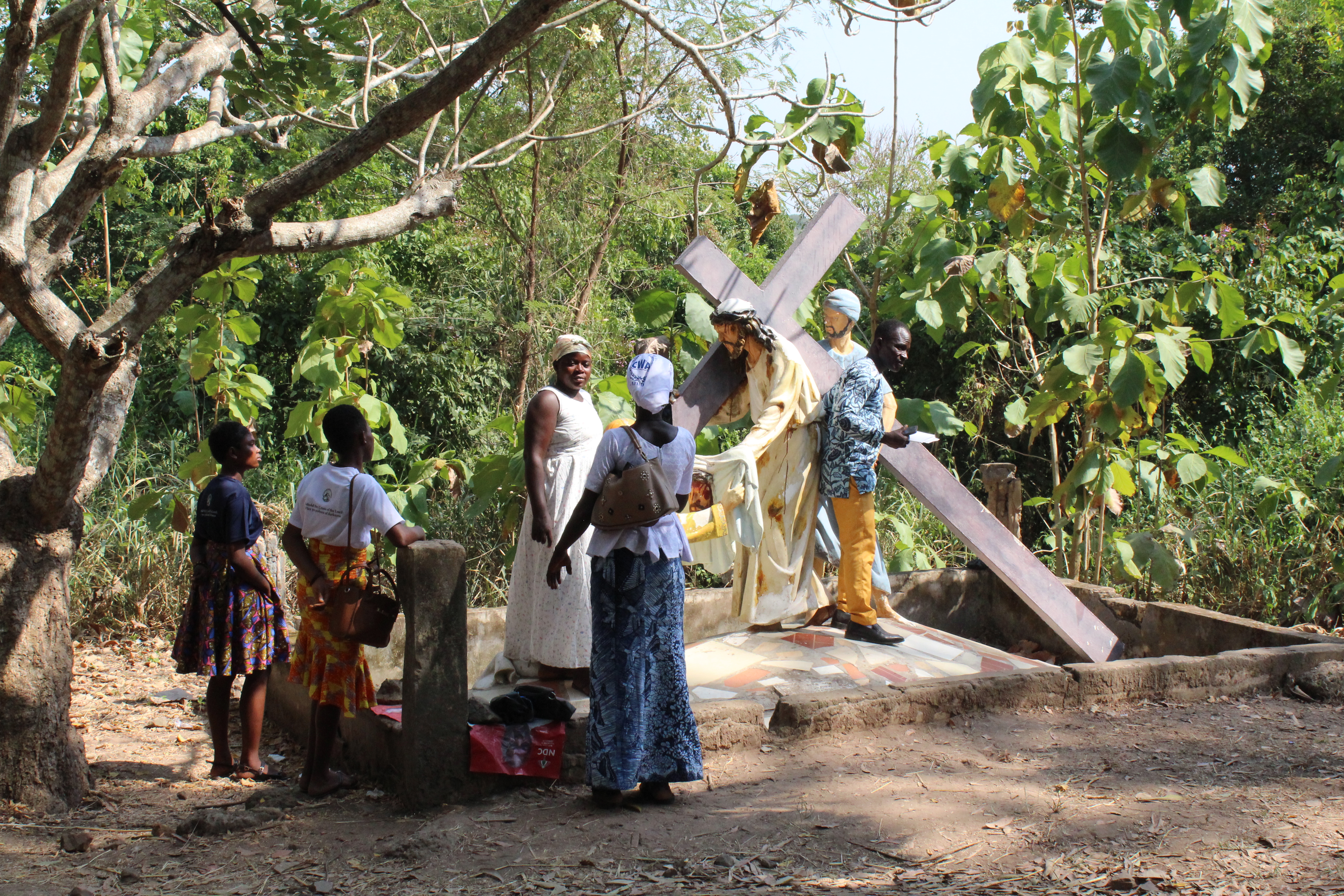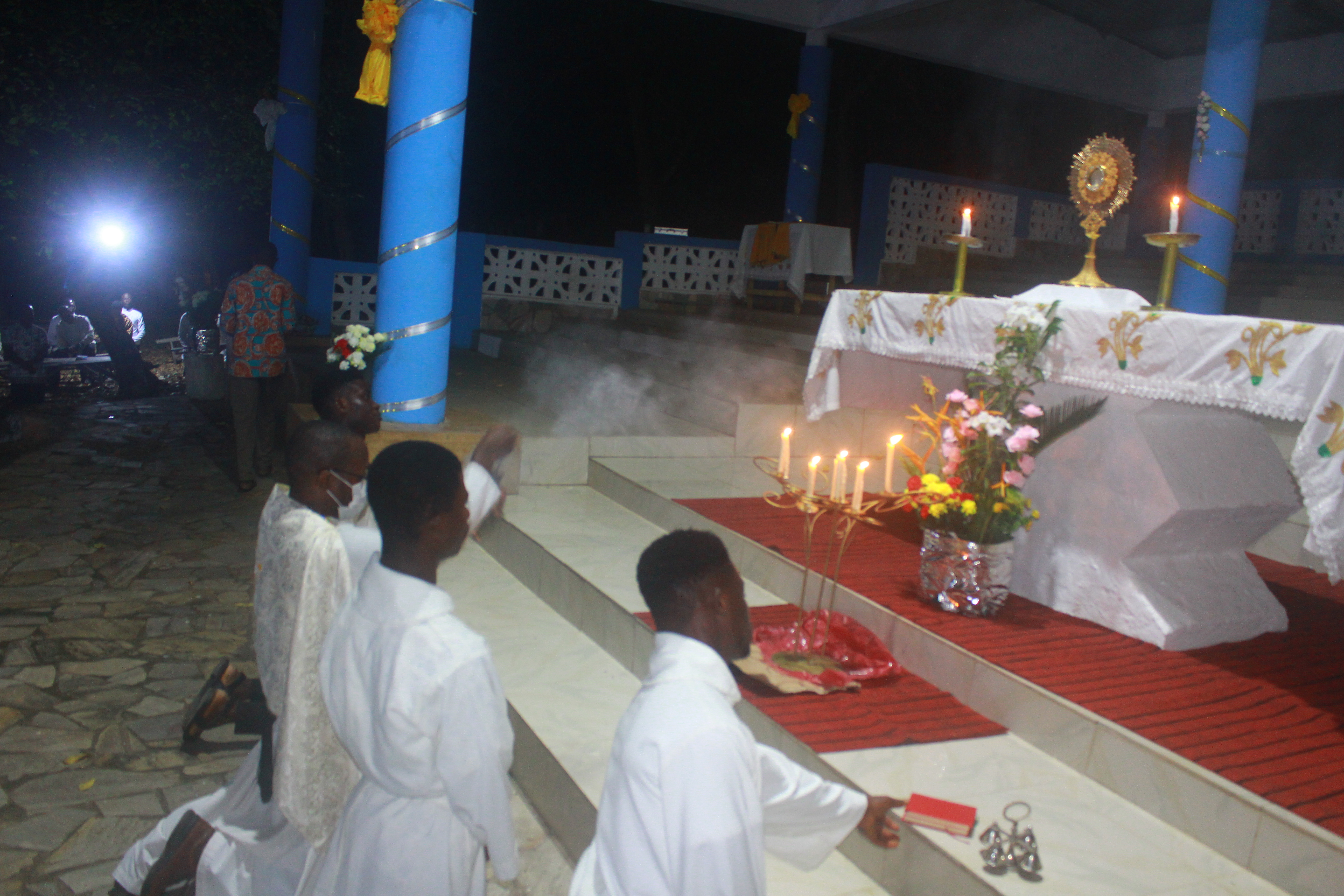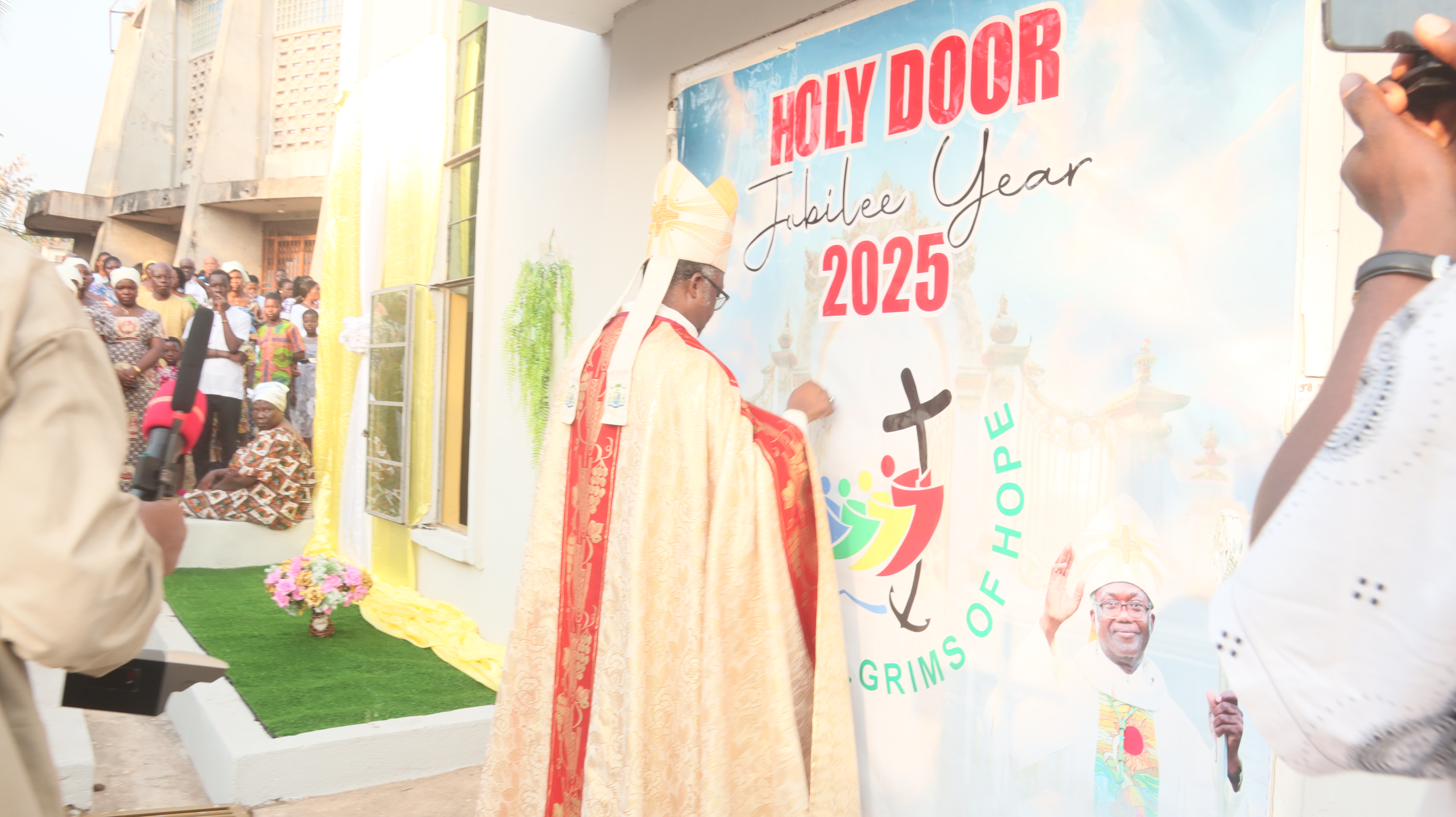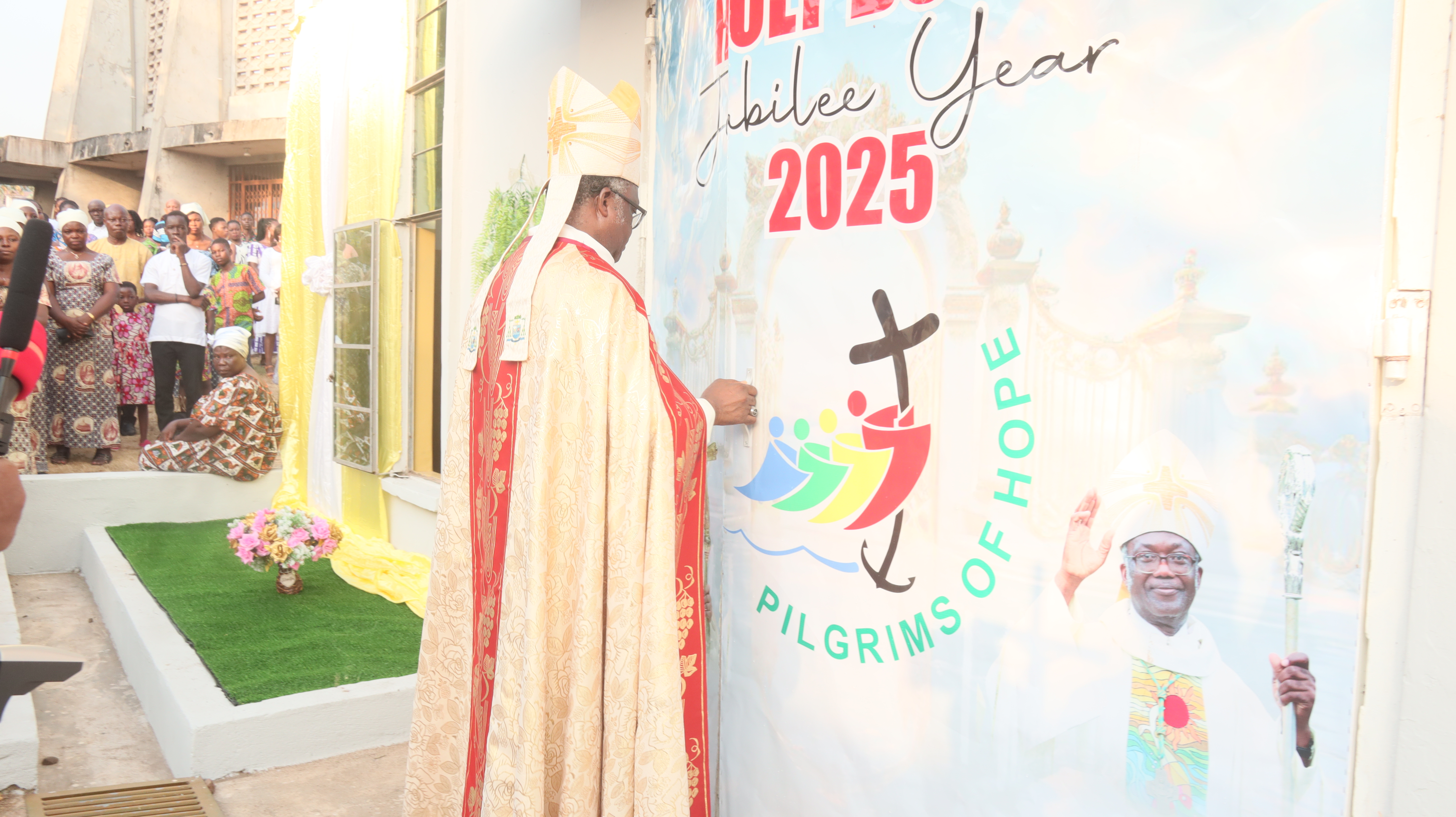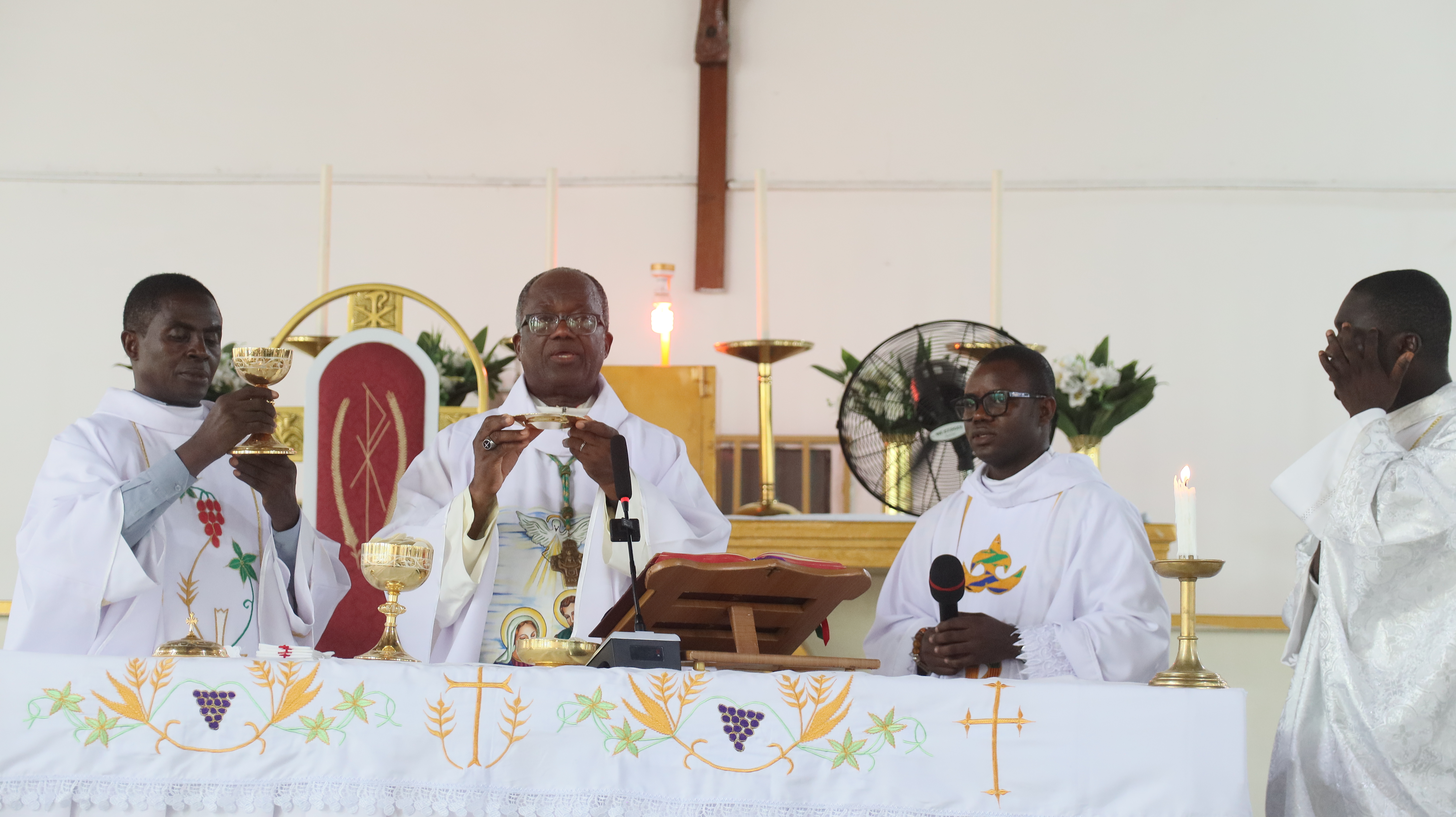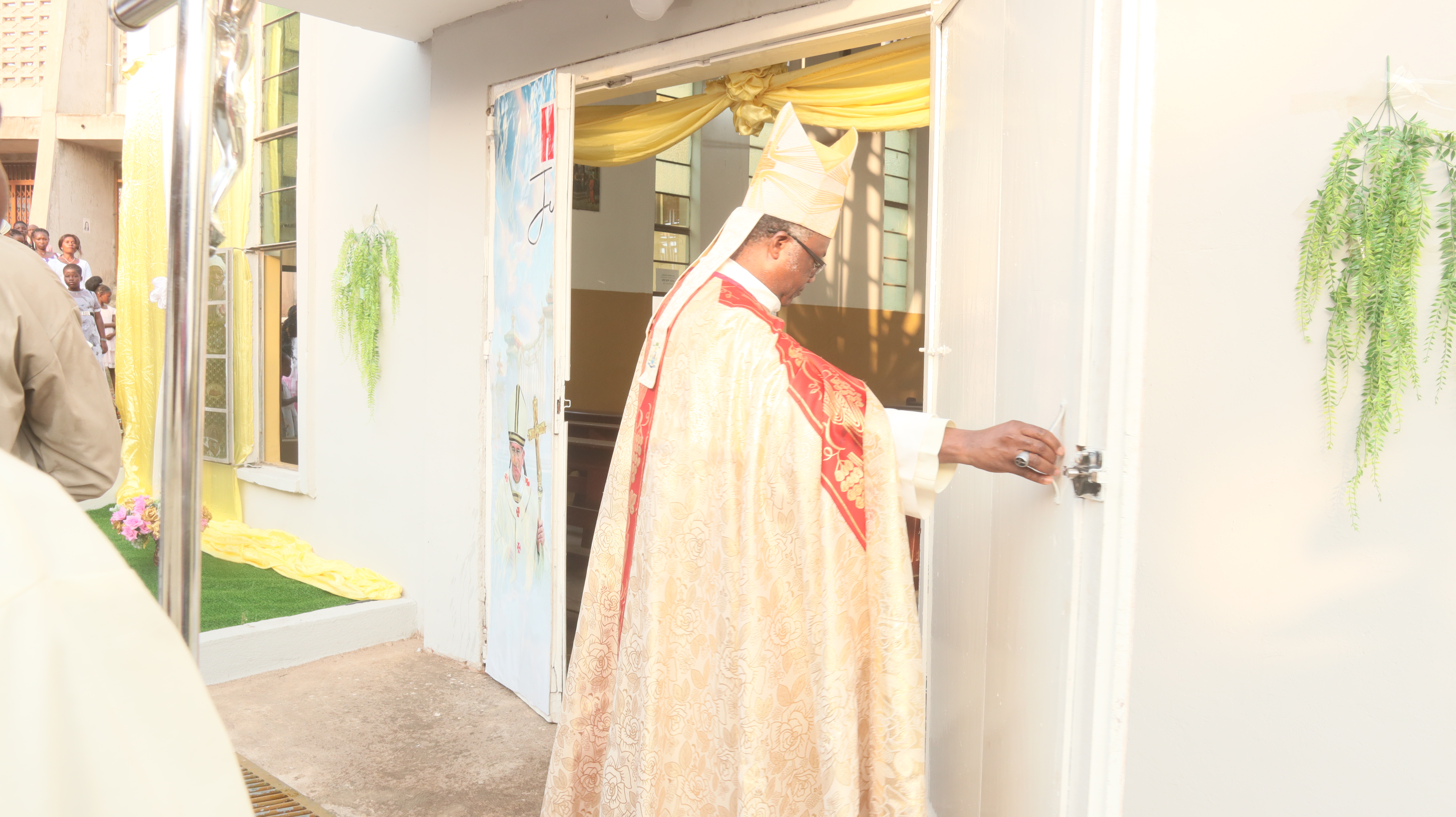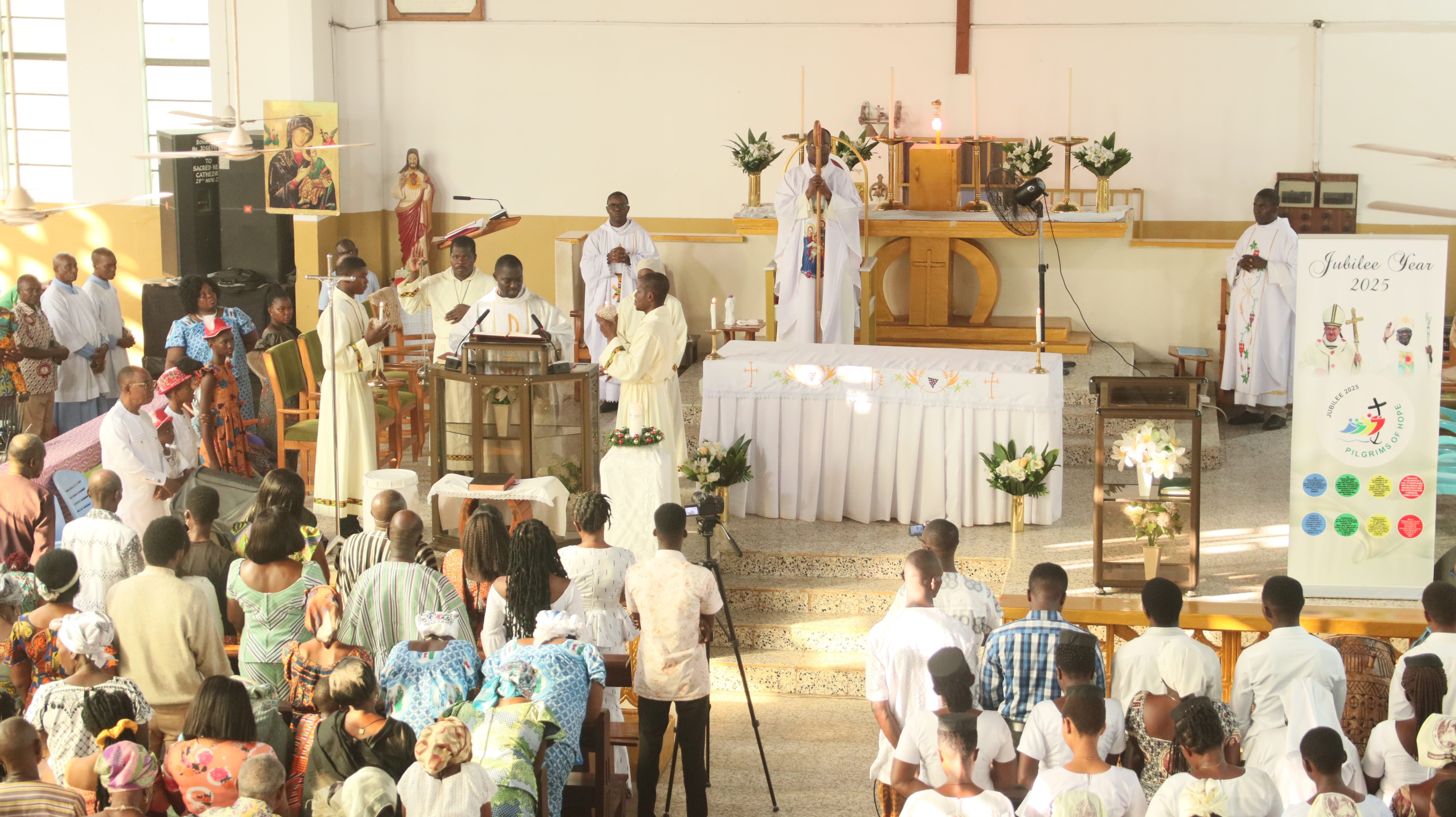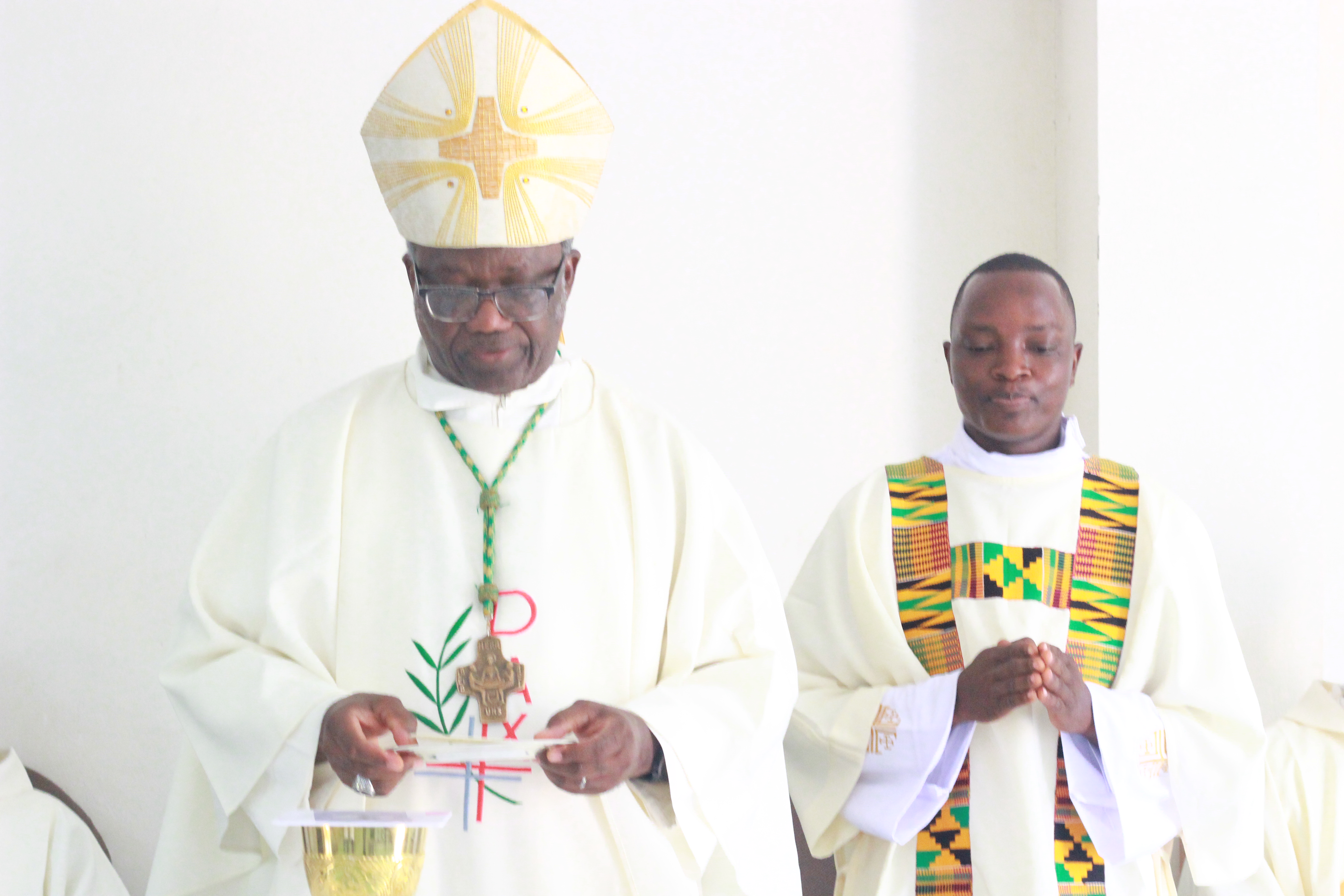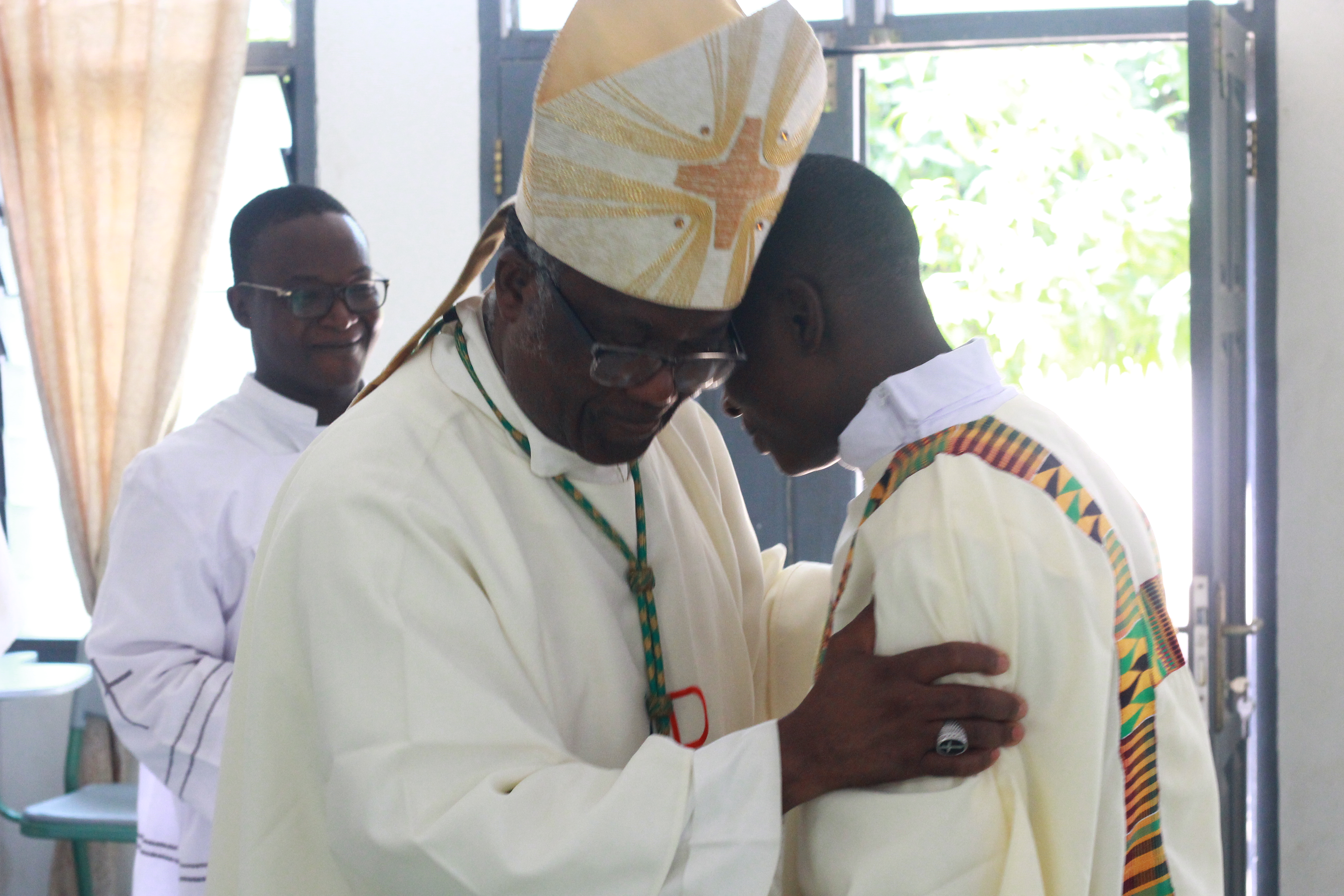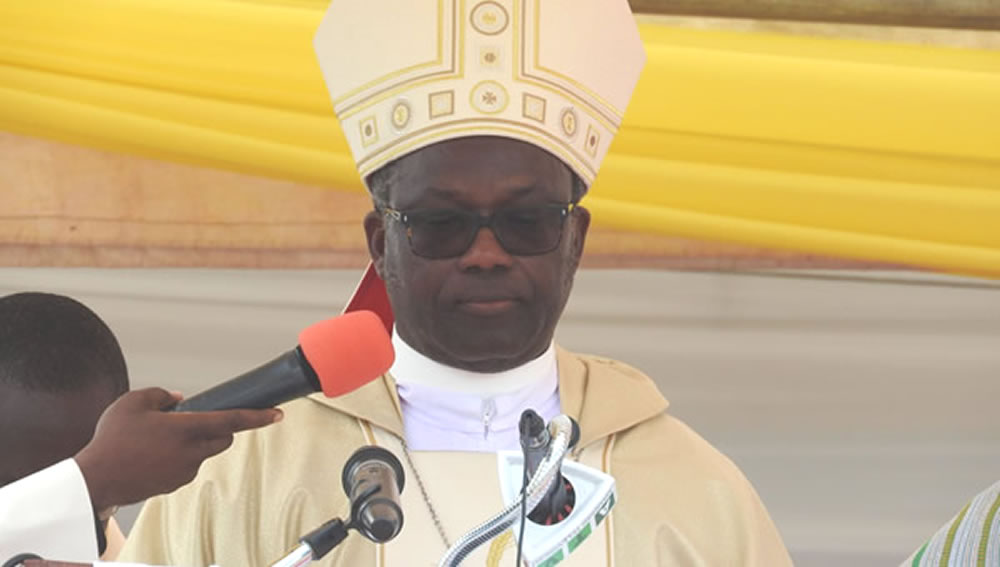GOD’S WORD IN DAILY LIFE
24 June/Monday/ Birth of John the Baptist
Isa 49,1-6/Psa 139,1-3.13-14ab.14c-15/Acts 13,22-26/Luke 1,57-66.80
First Reading Isaiah 49:1-6
I will make you the light of the nations so that my salvation may reach to the ends of the earth
Islands, listen to me,
pay attention, remotest peoples.
The Lord called me before I was born,
from my mother’s womb he pronounced my name.
He made my mouth a sharp sword,
and hid me in the shadow of his hand.
He made me into a sharpened arrow,
and concealed me in his quiver.
He said to me, ‘You are my servant (Israel)
in whom I shall be glorified’;
while I was thinking, ‘I have toiled in vain,
I have exhausted myself for nothing’;
and all the while my cause was with the Lord,
my reward with my God.
I was honoured in the eyes of the Lord,
my God was my strength.
And now the Lord has spoken,
he who formed me in the womb to be his servant,
to bring Jacob back to him,
to gather Israel to him:
‘It is not enough for you to be my servant,
to restore the tribes of Jacob and bring back the survivors of Israel;
I will make you the light of the nations
so that my salvation may reach to the ends of the earth.’
Responsorial Psalm Psalm 138(139):1-3,13-15
I thank you for the wonder of my being.
O Lord, you search me and you know me,
you know my resting and my rising,
you discern my purpose from afar.
You mark when I walk or lie down,
all my ways lie open to you.
For it was you who created my being,
knit me together in my mother’s womb.
I thank you for the wonder of my being,
for the wonders of all your creation.
Already you knew my soul,
my body held no secret from you
when I was being fashioned in secret
and moulded in the depths of the earth.
Second Reading Acts 13:22-26 ·
Jesus, whose coming was heralded by John
Paul said: ‘God deposed Saul and made David their king, of whom he approved in these words, “I have selected David son of Jesse, a man after my own heart, who will carry out my whole purpose.” To keep his promise, God has raised up for Israel one of David’s descendants, Jesus, as Saviour, whose coming was heralded by John when he proclaimed a baptism of repentance for the whole people of Israel. Before John ended his career he said, “I am not the one you imagine me to be; that one is coming after me and I am not fit to undo his sandal.”
‘My brothers, sons of Abraham’s race, and all you who fear God, this message of salvation is meant for you.’
Gospel Acclamation cf. Luke 1:76
Alleluia, alleluia!
As for you, little child, you shall be called
a prophet of God, the Most High.
You shall go ahead of the Lord
to prepare his ways before him.
Alleluia!
Gospel Luke 1:57-66,80
'His name is John'
The time came for Elizabeth to have her child, and she gave birth to a son; and when her neighbours and relations heard that the Lord had shown her so great a kindness, they shared her joy.
Now on the eighth day they came to circumcise the child; they were going to call him Zechariah after his father, but his mother spoke up. ‘No,’ she said ‘he is to be called John.’ They said to her, ‘But no one in your family has that name’, and made signs to his father to find out what he wanted him called. The father asked for a writing-tablet and wrote, ‘His name is John.’ And they were all astonished. At that instant his power of speech returned and he spoke and praised God. All their neighbours were filled with awe and the whole affair was talked about throughout the hill country of Judaea. All those who heard of it treasured it in their hearts. ‘What will this child turn out to be?’ they wondered. And indeed the hand of the Lord was with him.
Meanwhile the child grew up and his spirit matured. And he lived out in the wilderness until the day he appeared openly to Israel.
Reflection
There is something particularly interesting about the Gospel Reading and the solemnity of the birth of John the Baptist. We would have expected that the Gospel Reading would narrate the story of his birth but to our great surprise not much is said about the birth itself. We are only told that Elizabeth gave birth to a son. The first event that is reported at length is the naming ceremony that took place on the eighth day, which is also the day of the circumcision of the young child. The practice of naming the child on the eighth day when he was circumcised is a late tradition in Jewish culture. In the time of the patriarchs, the naming of a child took place at birth (Gen 25,25-26).
Luke focuses our attention on the name given to the child. Elizabeth told the people the child is to be called John but the people protested. We recall that the name John is the name the angel Gabriel gave Zachariah when he appeared to him in the Temple to announce the conception of a son by the wife Elizabeth. We are not informed that when Zachariah went home he told the wife about the name but the coincidence does not surprise the reader that much. We also need to understand the reaction of those gathered for the circumcision and naming ceremony. The tradition was that the first-born son should be given the name of the grandfather or the father. This is because the first-born son had the responsibility of carrying on the tradition and religion of the family. There must be a reason for the deviation from the tradition in the case of John the Baptist.
At times, we think the reason for the change is in the name itself. The name John means “Yahweh (God) is gracious”. While this reason may be applicable, it is also possible to see other reasons for the change from the tradition. Zachariah accepted the name proposed by the angel Gabriel because it marked a break with the lineage characterised by sterility and emptiness. The graciousness of God not only revealed a new beginning in the life of Zachariah and Elizabeth but also had consequences for the nation that the two of them represented. Israel that had become a rebellious and sinful nation was to see a change in her relationship with God.
The change brought by the birth of John the Baptist was to be seen in the canticle of praise of Zachariah that we normally call the Benedictus. Zachariah did not only praise God for what he has done to his family and nation; he also disclosed the mission of his son. His mission is one of transformation and restoration as he prepared the way for the Messiah to come into the world. From this perspective, we can understand why the solemnity of John the Baptist does not speak principally about his birth but what he stands for in the life of his parents and of the people of Israel. His birth is meaningful to us Christians because of his mission as precursor of Jesus. The words of the prophet Isaiah in the First Reading sound like a remote introduction of John the Baptist. The elements of the prophecy characterize John the Baptist in his mission. In the Second Reading, Paul refers to John as the herald of Jesus, thus affirming what we know the Gospel. The Psalmist speaks in the name of John the Baptist, thanking God for how wonderfully he created him.
The celebration of the birth of John the Baptist is therefore an invitation to identify him with his mission and listen to him when he starts his public ministry. May we heed his call to conversion so that we may be prepared to welcome Christ into our lives when we encounter him in our daily lives.

